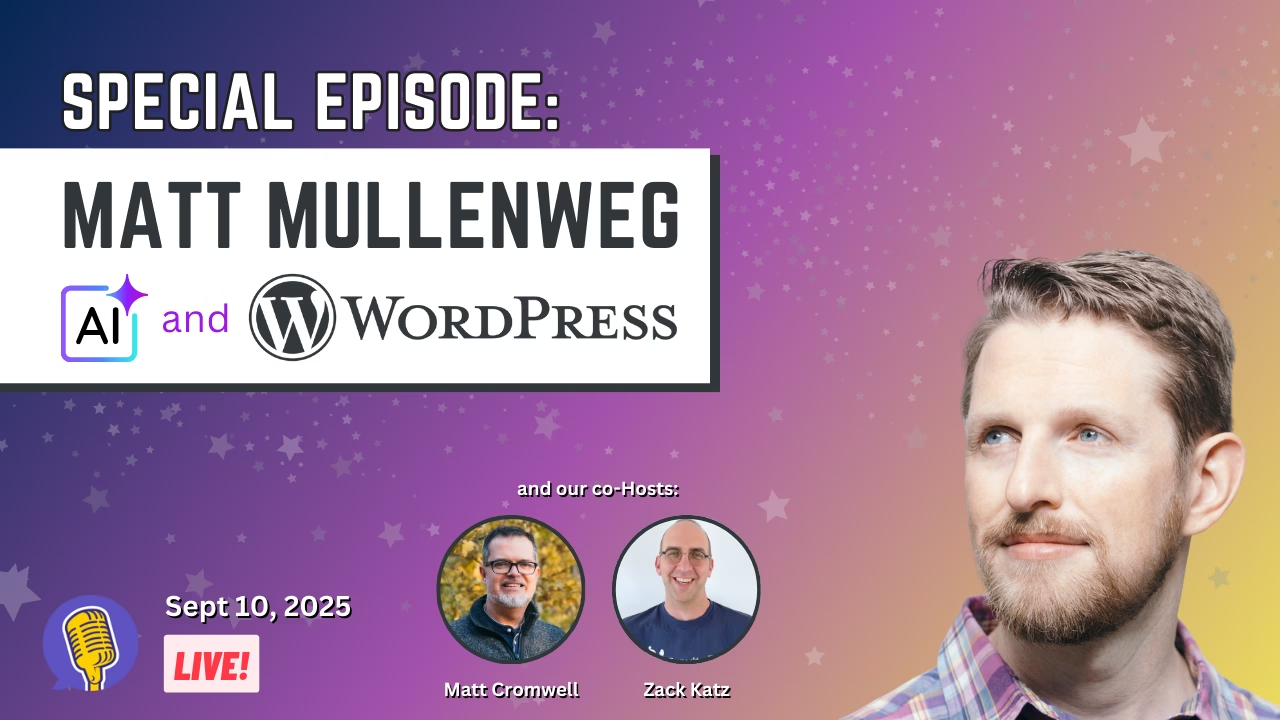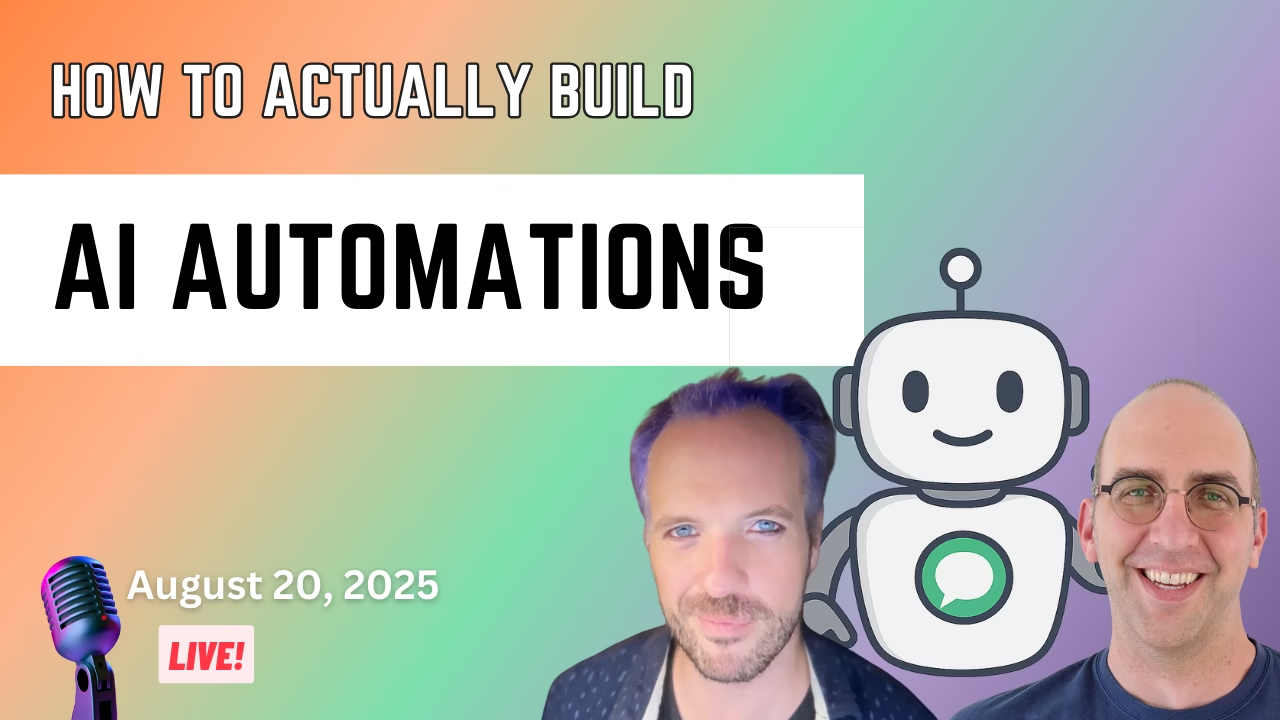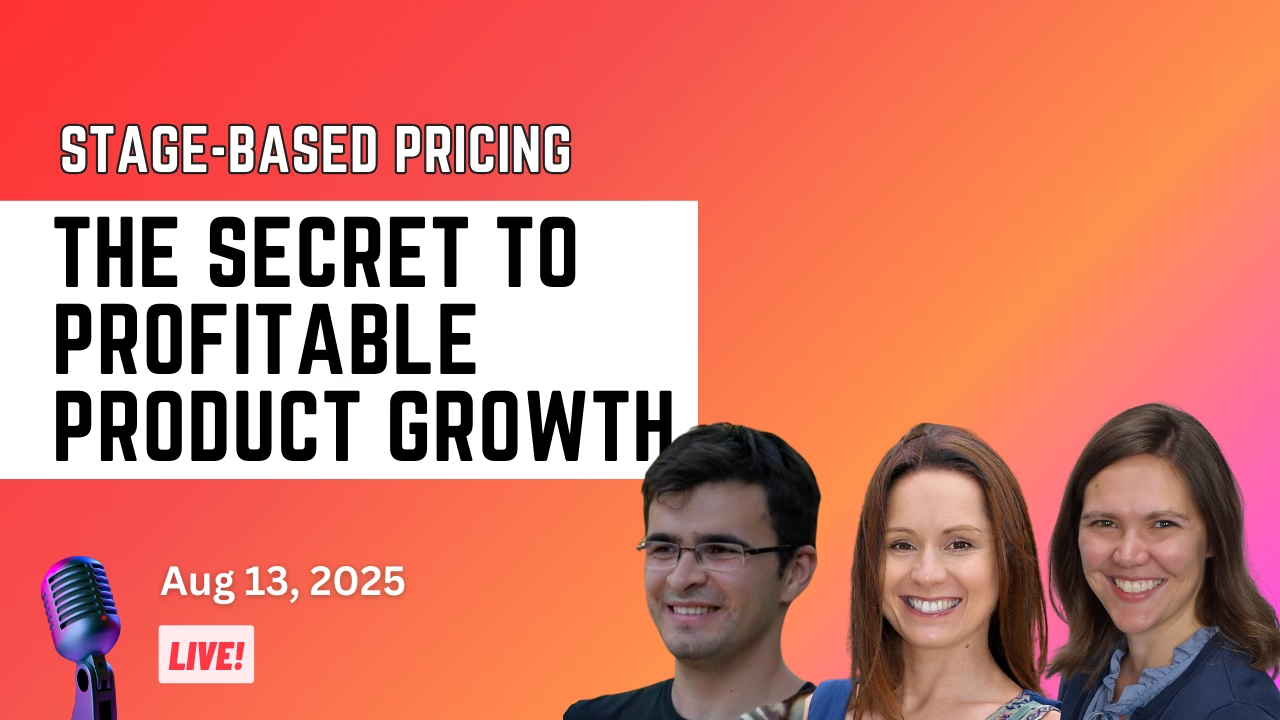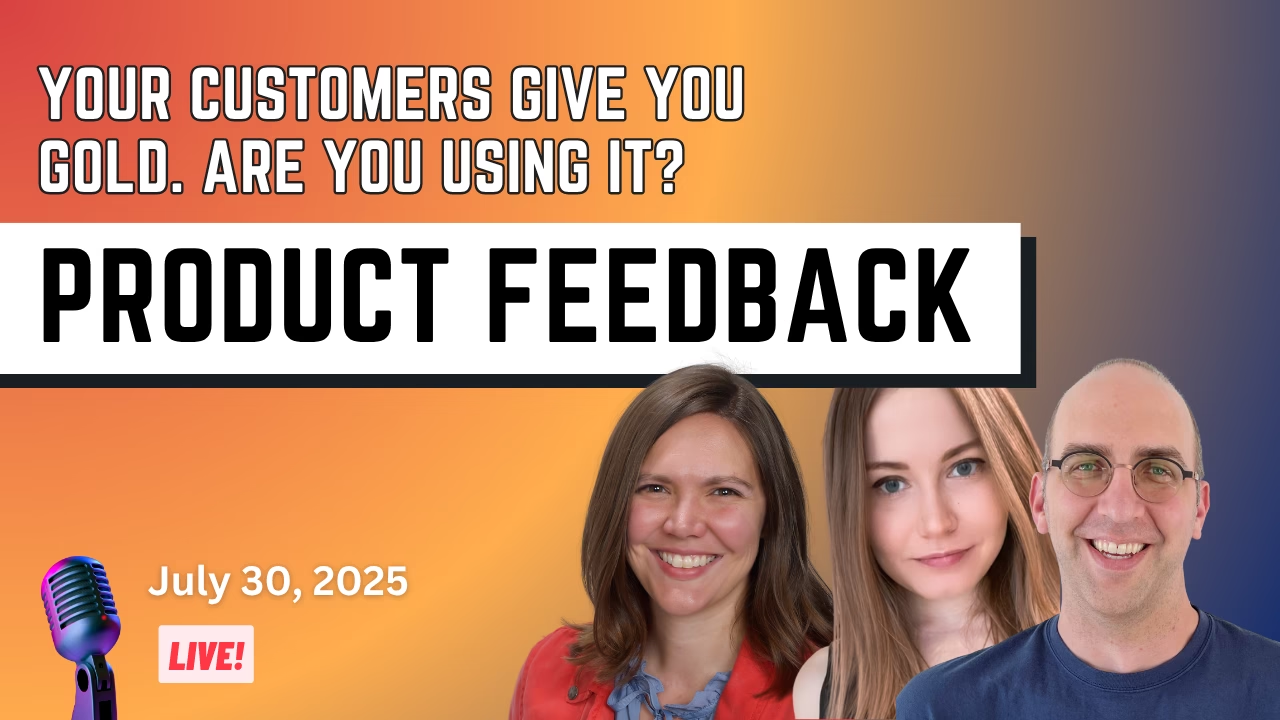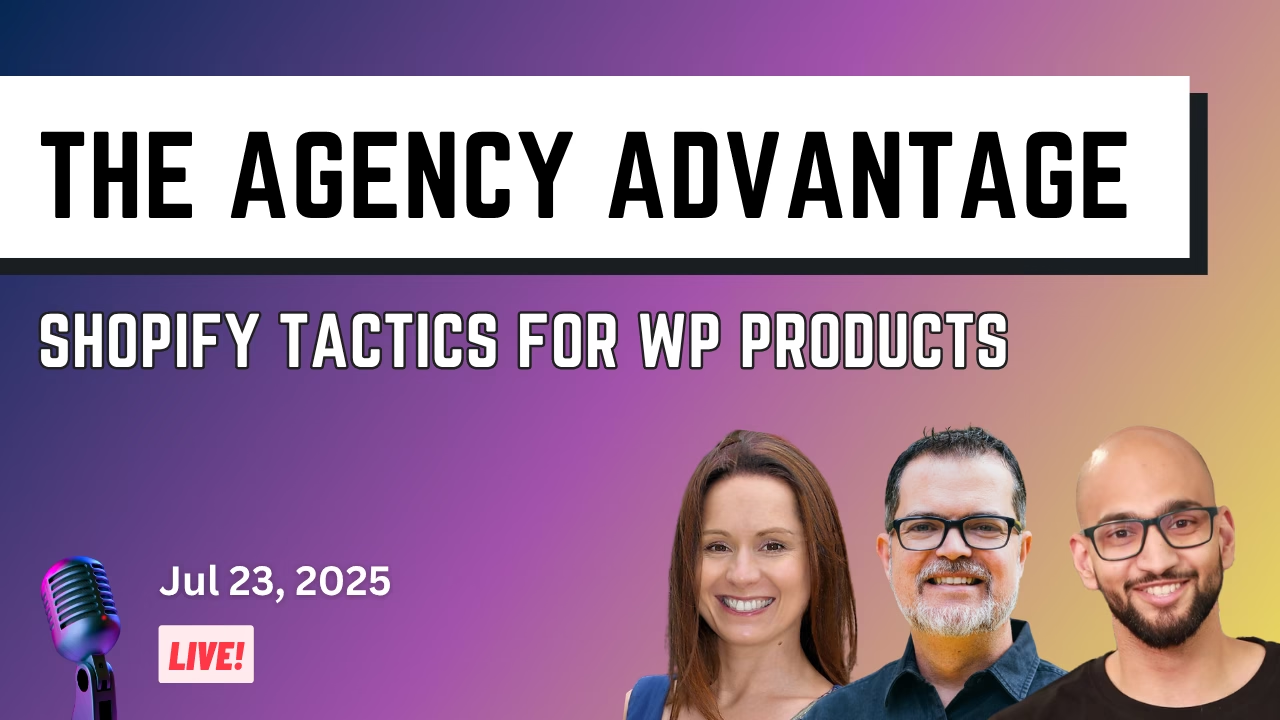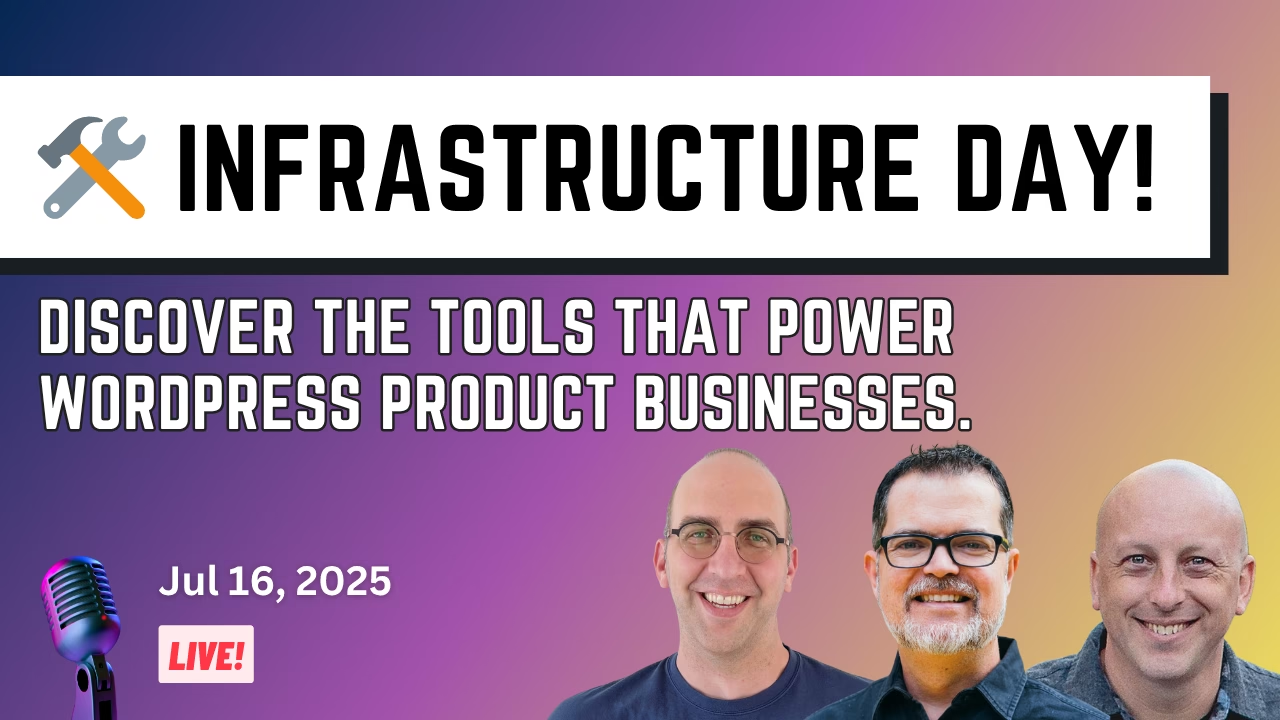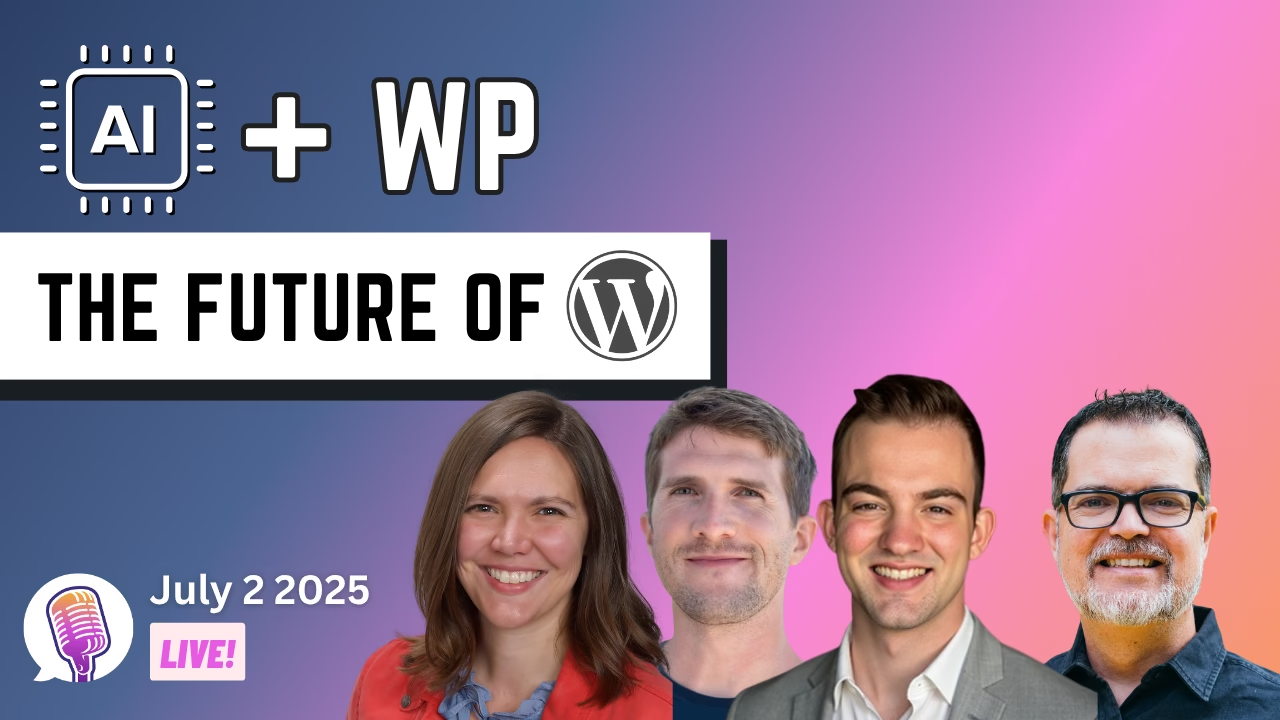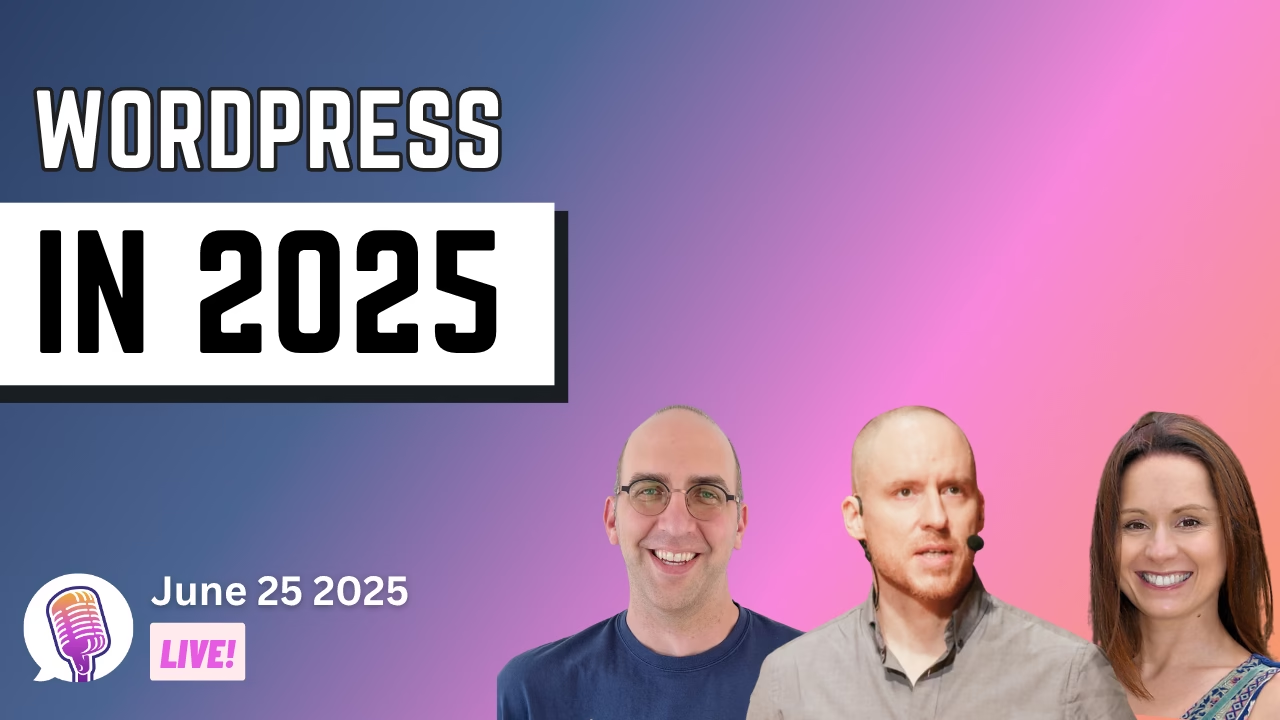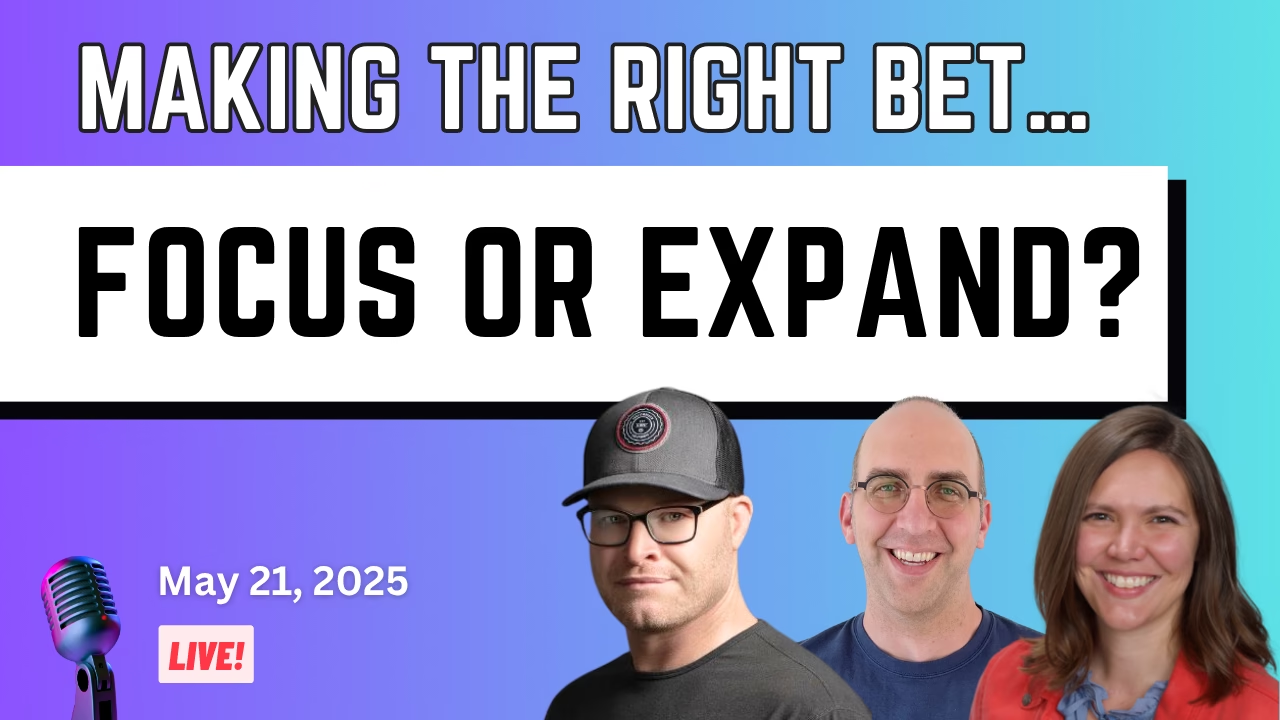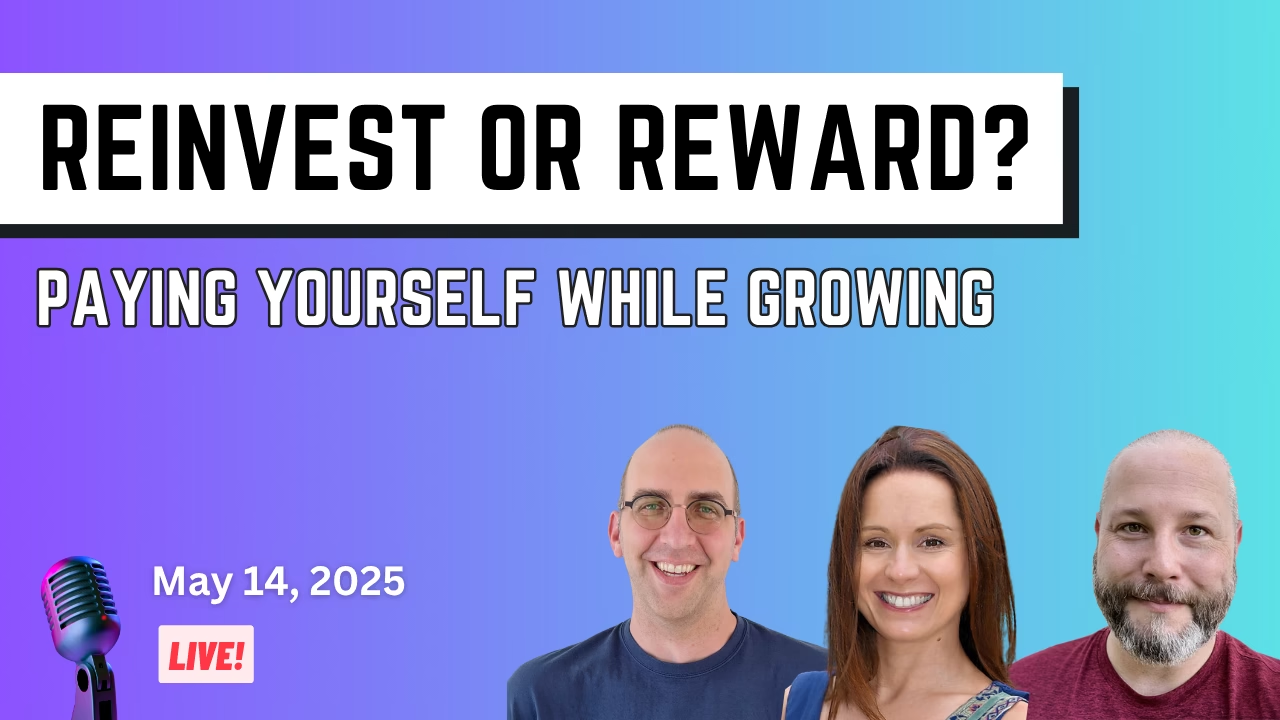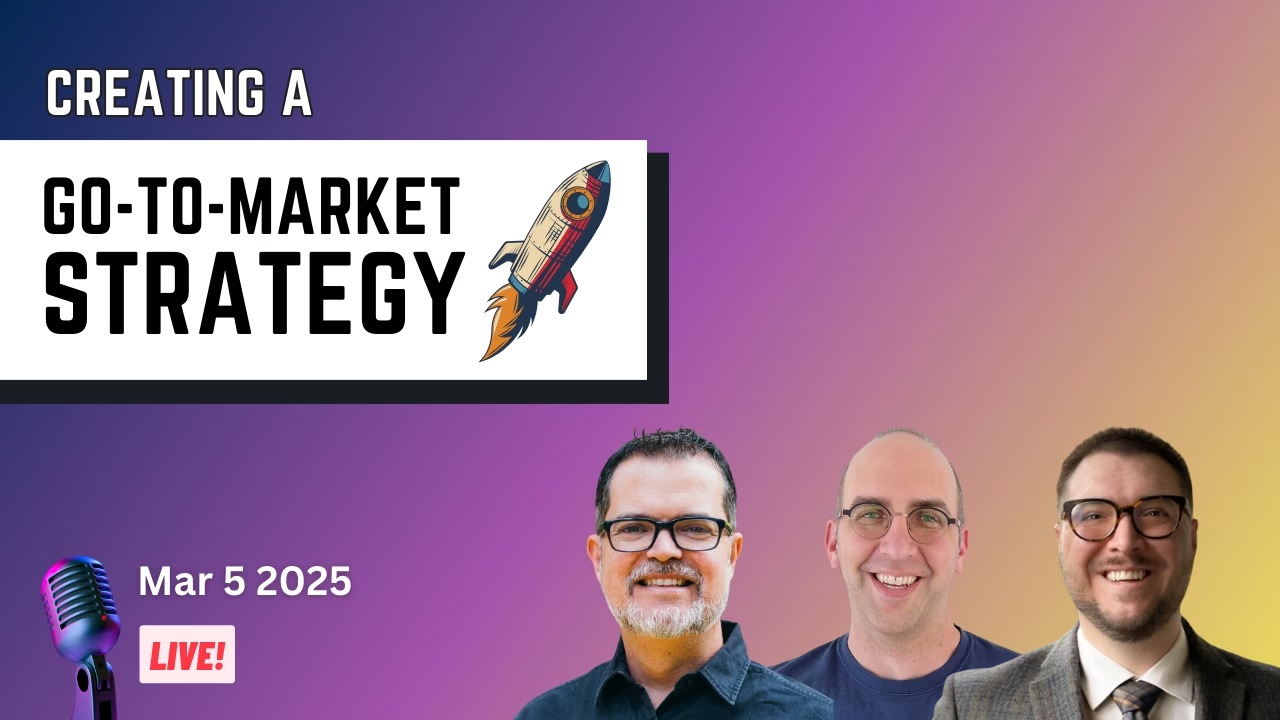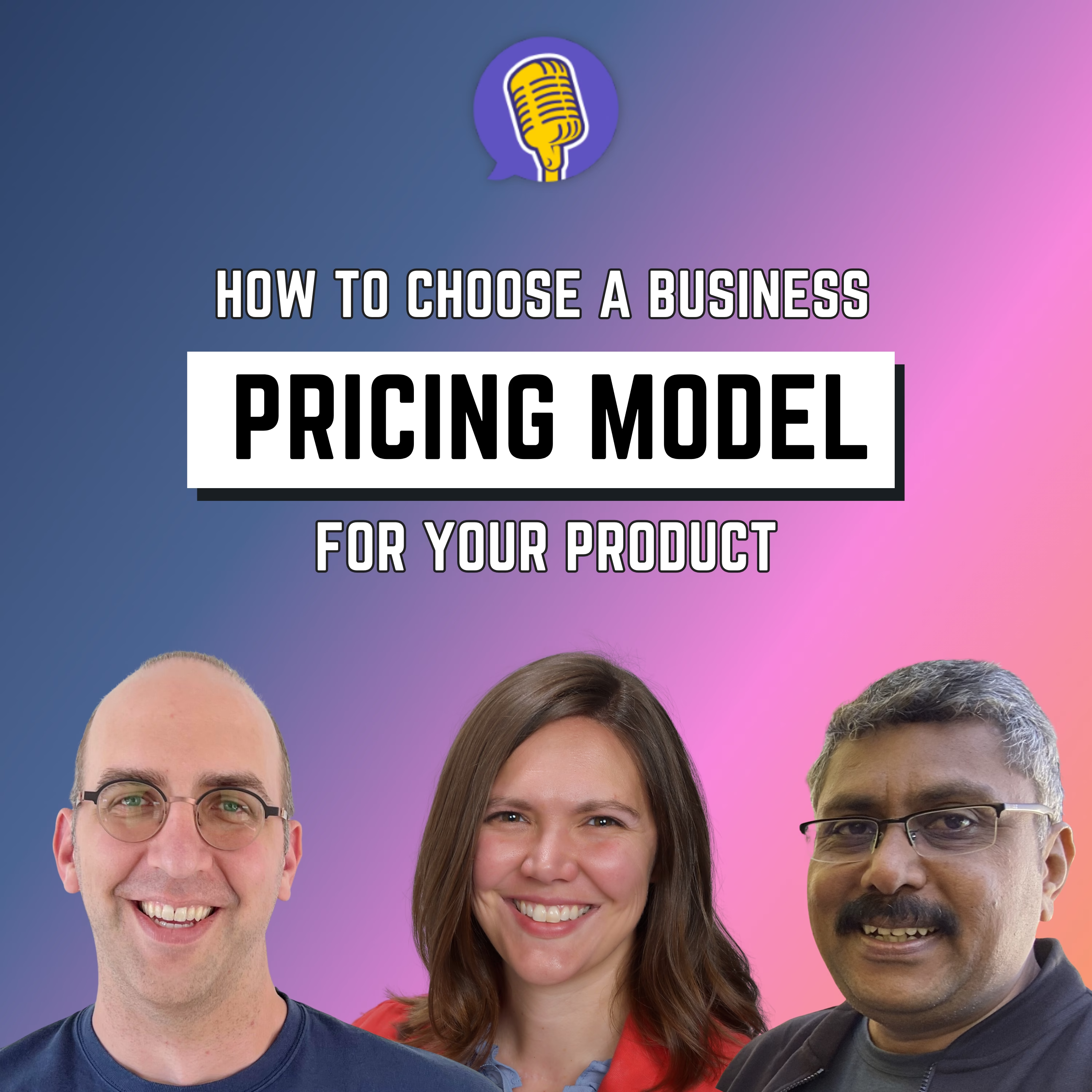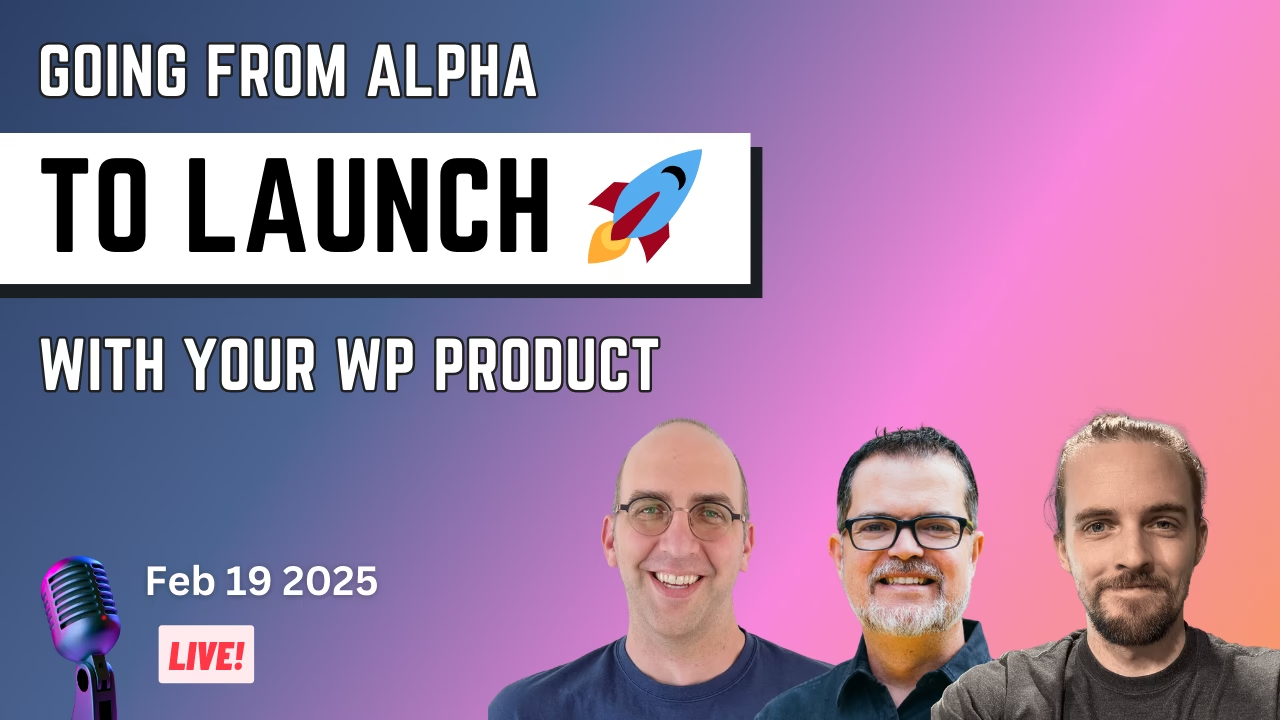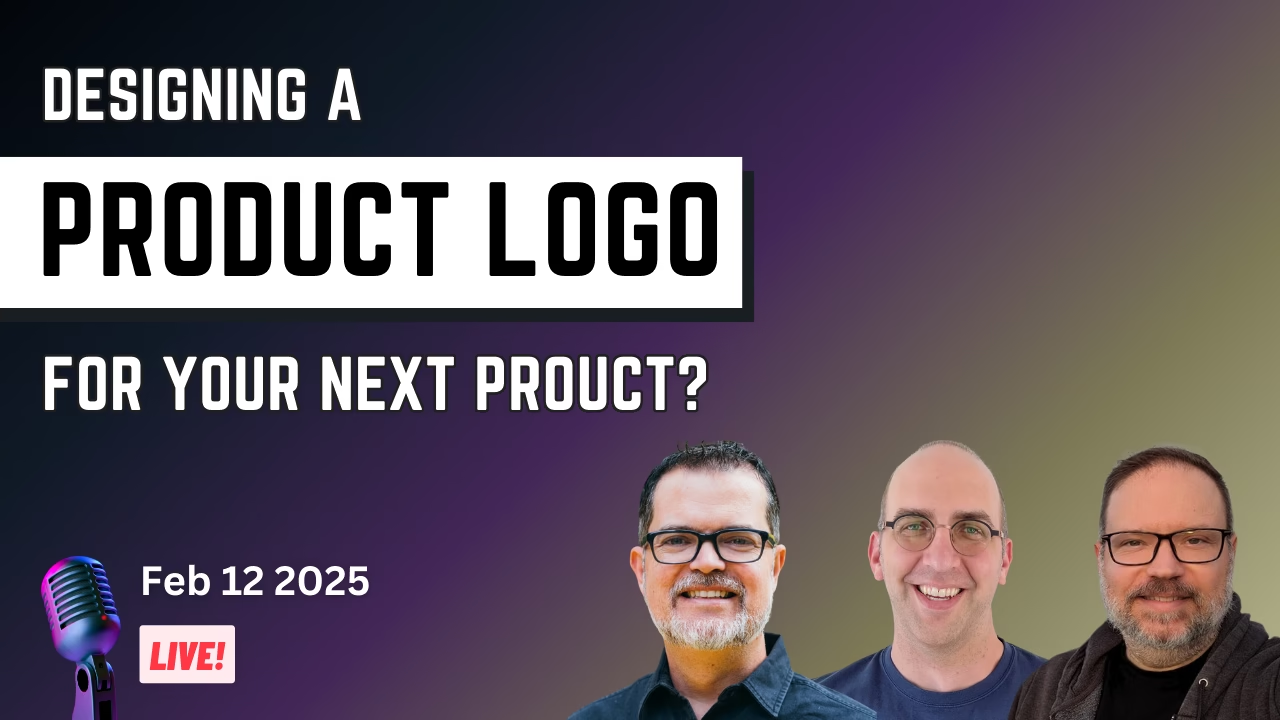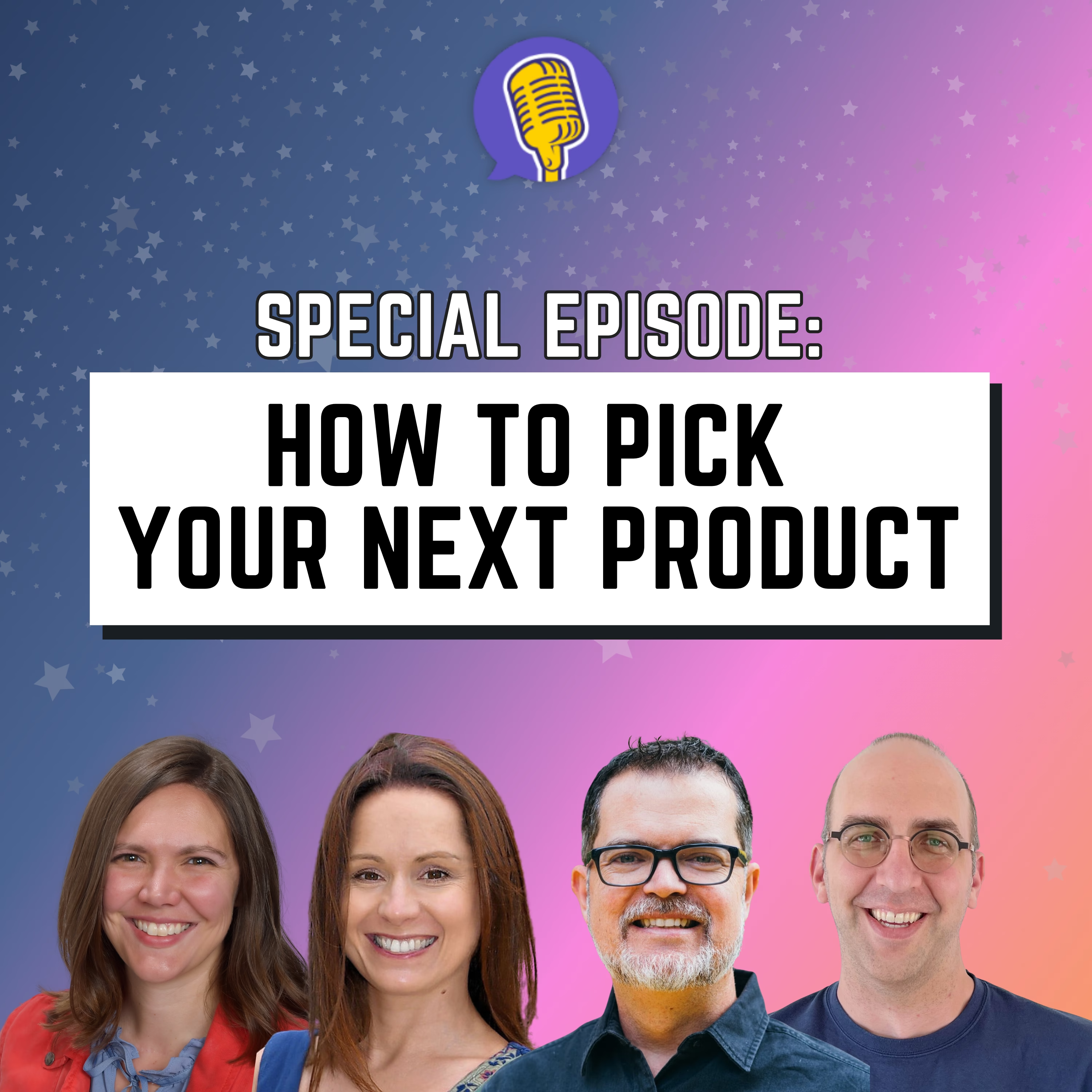Discover WP Product Talk
WP Product Talk

WP Product Talk
Author: WP Product Talk
Subscribed: 5Played: 160Subscribe
Share
© 2024 WP Product Talk
Description
This is WP Product Talk, the place where every week, we interview an experienced WP product owner on strategies, tips, experiences, failures, and successes of running successful and thriving WordPress product businesses.
87 Episodes
Reverse
Lifetime deals often look like the perfect launch strategy — quick cash, loyal early adopters, and momentum out of the gate. But what happens after the rush? Join us as Lesley Sim, fresh off launching her new product Event Koi, shares the behind-the-scenes of kicking off with a lifetime deal.
Co-hosts Katie Keith and Matt Cromwell will explore how lifetime sales shape product growth, customer feedback, and long-term sustainability for WordPress founders. If you’ve ever wondered whether lifetime deals are a rocket booster or a weight that drags you down, this episode is for you.
In this episode of WP Product Talk, hosts Katie Keith (Barn2 Plugins) and Zack Katz (GravityKit & TrustedLogin) are joined by James Baldacchino, Head of Strategy & SEO at Ellipsis, to dig into how AI is reshaping content strategy for WordPress products. James shares Ellipsis’ groundbreaking research into how products get chosen for inclusion in AI overviews, along with practical ways you can optimize both new and existing content to stay visible in this new search landscape.
We cover:
✅ How AI systems decide which products to highlight
✅ What makes content “AI-friendly” (and what doesn’t)
✅ Adjustments you can make to your current content strategy
✅ Opportunities to future-proof your marketing as AI search grows
If you want your product to stand out in the era of AI-driven search, this episode gives you actionable insights and clear steps to take advantage of the shift.
We’re joined by WordPress Co-Founder Matt Mullenweg to explore his vision for how AI is reshaping the WordPress ecosystem. From the Core AI initiative to Elementor’s “Angie,” to the WP Ai builder and new AI-powered browsers, Matt has been vocal that this is one of the most exciting moments in WordPress history. We’ll dig into how plugin and theme developers can prepare, what Automattic is experimenting with internally, and how AI could redefine workflows, usability testing, and even data portability across the web.
If you’re building WordPress products, this conversation is your chance to hear directly from Matt about the opportunities — and risks — of AI adoption. We’ll also take live questions, so bring your perspective and join the discussion about the future of WordPress and AI.
Links:
Ma.tt
Core AI
AI Building Blocks
WordPress Playground
Telex post on X by Jamie Marsland
In this episode, Zack sits down with Jack Arturo, founder of Very Good Plugins and WP Fusion to dig into the real-world impact of AI automations. We go beyond theory and talk about:
How Jack is already using AI to streamline customer support and business operations
What’s working today in AI automation inside WordPress businesses
Where the biggest opportunities (and pitfalls) lie for product makers
Practical steps you can take to start automating your own workflows
Whether you’re curious about saving hours each week, scaling your team’s capacity, or just trying to figure out what’s actually possible with today’s AI tools, this conversation will give you the clarity and inspiration you need!
Links from the show
Jack's AI-generated notes for what to discuss
Jack's ongoing Claude Automation Hub repository
Claude Desktop
Claude Code
In this episode of WP Product Talk, hosts Amber Hinds and Kaite Keith sit down with Ionut Neagu, founder of Themeisle to dive deep into the art and strategy of pricing your product based on its stage in the market. We explore why pricing is one of the most powerful levers you have to increase profitability—and how it can double as a smart marketing strategy. Ionut shares real-world examples, including how a shift in competing product pricing opened the door for Themeisle to position their Super Page Cache plugin to attract multi-site owners and boost adoption.
Whether you’re launching a new product, scaling an established one, or rethinking your pricing model, you’ll learn:
How to align pricing with your product’s life cycle
Ways to use pricing changes to capture market share
What pitfalls to avoid when experimenting with price
Listen to the episode for practical advice, candid stories, and actionable takeaways to help you make smarter pricing decisions that drive both profit and growth.
The conversation was a comprehensive discussion about the current state and future of WordPress block themes, featuring industry experts Brian Gardner (founder of
StudioPress/Genesis) and Head of Community at WP Engine, Mike McAllister (creator of Ollie theme), and Matt Cromwell and Zack Katz as hosts.
The discussion explored how the WordPress theme market has evolved from legacy PHP-based themes through page builders to the current block theme ecosystem, with particular focus on the challenges of adoption, developer experience issues, and market opportunities.
The conversation concluded with practical advice for newcomers: focus on vertical markets and specific niches rather than trying to build generic themes, and consider solving real-world problems that happen to use WordPress rather than building "WordPress themes" as the primary goal.
The discussion highlighted that while the block theme market is wide open for innovation, success requires understanding the new paradigm and targeting specific audiences with focused solutions.
In this episode of WP Product Talk, we’re joined by Elena Kartoshkina, Product Marketing Manager at Crocoblock, to explore one of the most powerful growth tools in a product business: the customer feedback loop.
Hosts Zack Katz and Amber Hinds will discuss with Elena how to capture feedback that matters, analyze it effectively, and translate it into features your customers will love.
Whether you’re a solo founder or part of a product team, you’ll learn how to build a continuous feedback process that fuels your roadmap, strengthens user loyalty, and drives sustainable growth.
Together with co-hosts Katie Keith and Matt Cromwell, they explore how WordPress product owners can adopt lessons from Shopify’s agency-first model to build premium, high-touch offerings without ballooning their support teams. If you're tired of chasing app store visibility and want to grow smarter, not just harder, this is the conversation you didn’t know you needed.
Building a successful WordPress product isn’t just about writing great code; it’s about everything that happens behind the scenes. From customer support and email automation to licensing, analytics, and documentation, infrastructure decisions can make or break your business as it grows.
In this episode of WP Product Talk, hosts Matt Cromwell (StellarWP) and Zack Katz (GravityKit) are joined by Matt Batchelder (StellarWP) to unpack the tools and systems WordPress product owners rely on to run smooth, scalable businesses.
Selling globally sounds like a dream for WordPress product owners—but doing it well requires more than flipping a currency switch. In this WP Product Talk episode, Katie Keith and Zack Katz welcomed Steve Jones of Equalize Digital to unpack the real-world complexities of building for international sales. From translations and tax compliance to accessibility and currency display, this grounded and insightful conversation explored what it takes to scale responsibly and inclusively. If you’ve ever wondered whether translating your plugin or offering pricing in rupees is worth it, this episode will give you real examples, thoughtful debate, and some surprising conclusions.
What makes this discussion especially valuable is its no-fluff honesty. Steve, Katie, and Zack all shared behind-the-scenes experiments—some successful, others less so—that shaped how they now approach international markets. Whether you’re trying to meet European VAT laws, deciding whether AI translation is “good enough,” or just looking to avoid pitfalls with localization, this episode is a must-watch. It’s a refreshingly practical look at what it really means to build WordPress products for a global audience.
Is WordPress ready for its AI pivot? On July 2 at noon ET, join “AI + WP – The Future of WordPress” as Matt Cromwell and Amber Hinds sit down with James LePage, Head of the Core AI team at WordPress.org. We’ll explore why “embrace AI or fade away” isn’t hype—it’s the new survival rule.
Expect candid insights on plugin-first AI, revenue models, and concrete first steps you can ship in 30 days. If you build or sell WordPress products, this AI WordPress roadmap could be the difference between leading and lagging.
Welcome to Season 7 of WP Product Talk! We’re kicking off with a powerful episode that explores the big question: Is WordPress dying, evolving, or thriving in 2025?
🎙️ About the Episode
In this landmark 99th episode, hosts Katie Keith and Zack Katz are joined by Noel Tock, partner at Human Made, to take a deep and wide-ranging look at where WordPress stands today. From its role in enterprise to missed opportunities around first-party integrations and AI, this conversation dives into trends, challenges, and huge untapped potential.
🧠 Key Topics Covered
Is WordPress Still Growing? A discussion on market share, commercial maturity, and how WordPress is perceived inside and outside the ecosystem.
Fragmentation and Specialization Why “one-size-fits-all” doesn’t work anymore, and how niche tools are overtaking monolithic CMSs.
Enterprise and Product Marketing What enterprises actually need (hint: it’s not more features), why plugin companies struggle to sell outcomes, and the difference between selling to small biz vs. enterprise.
First-Party Integrations: A Missed Opportunity How WordPress could have dominated with first-party integrations (e.g. headless, HubSpot), and what it can still do to catch up.
AI in WordPress What Shopify is doing that WordPress isn’t, how agentic AI could revolutionize plugin interoperability, and why open source gives us a unique advantage—if we execute.
Block Editor in Enterprise Why Gutenberg is surprisingly competitive at the enterprise level, and the push toward a hybrid “content repository” approach.
The FAIR Initiative Why FAIR might be the beginning of a unified distribution format—and how it could open doors to entirely new plugin discovery and marketing models.
💡 Best Advice for WordPress Product Owners
Katie Keith: Stay informed about where WordPress is headed—especially around AI and the block editor—and let that guide your product strategy.
Zack Katz: Don’t sell to enterprise unless you really want to—it’s a different world with different demands, and it might not be worth the effort.
Noel Tock: Build at the extremes—either build platforms that own entry points (e.g. enterprise portals), or build sharply defined, innovative tools that are outcomes-first (e.g. the MidJourney of WordPress blocks).
🔗 Links & Resources
Selling to Enterprises – Freemius Article
Human Made
FAIR Package Manager Project
Follow Noel Tock: Instagram | LinkedIn
Should You Expand or Double Down? Zack and Amber discuss making the hard call with guest Kevin Geary.
When your product is gaining traction, what’s the next move? Do you keep building on what’s working, or take a chance on something new? This week on WP Product Talk, guest Kevin Geary, founder of Digital Gravy, joins hosts Zack Katz and Amber Hinds to talk through one of the hardest choices product makers face: stay focused or diversify.
We will discuss the challenges of managing more than one product and how to decide where to invest your time and energy. If you’ve ever wondered whether to grow wide or go deep, this episode is for you.
🎧 Tune in for an honest conversation that can help clarify your next step. Don’t miss it—especially if you’ve got a few domain names burning a hole in your pocket 😀
As a WordPress product founder, figuring out when—and how much—to pay yourself can be one of the trickiest financial decisions you’ll face. In this episode of WP Product Talk, hosts Katie Keith (Barn2 Plugins) and Zack Katz (GravityKit) are joined by Chris Hinds, COO of Equalize Digital, for a candid discussion about the realities of founder compensation in a bootstrapped business.
We cover:
✅ How to decide when it’s the “right time” to start paying yourself
✅ Strategies for balancing founder income with reinvestment in growth
✅ The trade-offs between short-term sacrifice and long-term sustainability
✅ Real-world examples of what’s worked — and what hasn’t — from our guests' own businesses
Whether you're just starting out or trying to scale without outside funding, this episode helps you navigate the fine line between building a healthy business and making a living from it.
A solid go-to-market strategy can make or break your WordPress product’s success. Join us as we chat with Nathan Weller, Product Marketer at StellarWP, about crafting an effective strategy that aligns marketing, sales, and product development for maximum impact. Whether you’re launching your first product or refining your approach, this conversation will provide practical insights to help you succeed.
Co-hosts Matt Cromwell and Zack Katz will dive into the key elements of a winning strategy. Don’t miss this chance to gain expert advice and ask your burning questions!
Join hosts Amber, Zack, and guest Ramesh Subramaniam of Retainful to discuss how to decide on a business and pricing model that works for your next WordPress product.
Bringing a WordPress product from alpha to launch is a journey filled with challenges, lessons, and strategic decisions. Join us on February 19 at Noon Eastern as we dive deep into this process with Jonathan Jernigan, author of Pie Calendar. We'll explore the critical steps of refining your idea, gathering feedback, and iterating toward a successful release.
Co-hosts Zack Katz and Matt Cromwell will guide the conversation, uncovering insights on developing a WordPress product that stands out in the marketplace. Whether you're an aspiring product owner or looking to refine your go-to-market strategy, this is an episode you won’t want to miss!
Designing a product logo is more than just picking a font or color palette—it’s a strategic move that can elevate or undermine your WordPress product’s identity. Joel Butler, Multimedia Designer at StellarWP, joins us to talk about why designing a product logo is crucial for brand success and what pitfalls to avoid.
Don’t miss this engaging conversation that will equip you with practical tips and design know-how to craft an unforgettable logo. Our co-hosts combine their diverse WordPress product experience with Joel’s creative insights to offer a well-rounded perspective. Tune in to transform your brand identity and stay ahead in the competitive WordPress market.
In this episode of WP Product Talk, hosts Katie Keith and Amber Hinds interview Marieke van de Rakt from Emilia Capital to discuss various funding strategies for developing a WordPress product. They explore bootstrapping, loans, investment options, and creative funding methods like pre-orders and crowdfunding. The conversation highlights the importance of understanding your financial situation, growth potential, and the implications of giving up equity in your business. Both successful bootstrapped and investment-backed models are examined, offering insight into making informed financing decisions for product development.
Show Notes
Bootstrapping
Bootstrapping involves funding your product solely through your own resources. This approach can be beneficial for maintaining full ownership and control over your business. However, it may limit the speed of growth compared to funding that allows you to focus solely on product development.
Loans as Funding Sources
Using loans for product development can provide the necessary capital without giving away equity. However, it entails risks such as debt servicing and requires careful planning to ensure revenue generation can cover the loan payments.
Investment and Equity Considerations
When seeking investment, it's essential to evaluate whether you need external capital. Giving up equity can dilute ownership and may lead to pressure for a quick exit. Understanding investor goals is crucial before proceeding.
Crowdfunding and Pre-orders
Funding a product through pre-orders or crowdfunding platforms like Kickstarter can be effective. However, successful campaigns often require a strong marketing strategy and an existing following to attract backers.
Understanding Your Numbers
Having a solid grasp of your financial situation is vital for determining the best funding strategy. This includes monitoring revenue, expenses, and forecasting future growth.
Freemium versus Premium Models
Freemium models can be advantageous in attracting users but may lead to lower valuations due to reliance on upselling to convert free users. Investors often prefer premium models that demonstrate clear revenue potential.
In this special episode of WP Product Talk, hosts Matt Cromwell, Amber Hinds, and Katie Keith kick off Seasons 6 and 7 by discussing how to choose the right digital product to build. They emphasize the importance of conducting thorough research, identifying gaps in the market, and leveraging insights gained from prior agency work or client requests. The conversation includes sharing personal experiences on product ideation and the potential advantages of entering crowded markets with a unique take. The episode sets the groundwork for a structured approach to building WordPress products over the upcoming seasons.
Show Notes
Importance of Research
Conducting thorough research on existing solutions is crucial before developing a new product. This helps identify gaps in the market, evaluate competitors, and discover ways to differentiate the forthcoming product. Paying for access to competitors’ solutions can offer valuable insights.
Product Ideas from Agency Work
Many product ideas stem from experiences in agency work. Engaging with clients can reveal repeated needs or gaps that the market hasn't addressed yet, allowing developers to create solutions that serve a broader audience.
Crowded Markets Can Be Beneficial
Entering a crowded market isn't always a disadvantage. If a developer can provide a unique solution or improved functionality in a space with existing products, they can meet the demand for better options, as evidenced by a number of successful plugins.
Focus on Pain Points
Identifying and addressing specific pain points that users experience with current solutions can lead to the creation of successful products. Listening to feedback from potential users helps refine product ideas and ensures that they meet actual needs.
Iterative Prototyping
Employing a rapid prototyping approach to quickly test out product ideas can be beneficial. The ‘3-3-3’ principle encourages developers to create small prototypes, gradually expand upon them, and test for market interest before fully committing to development.




